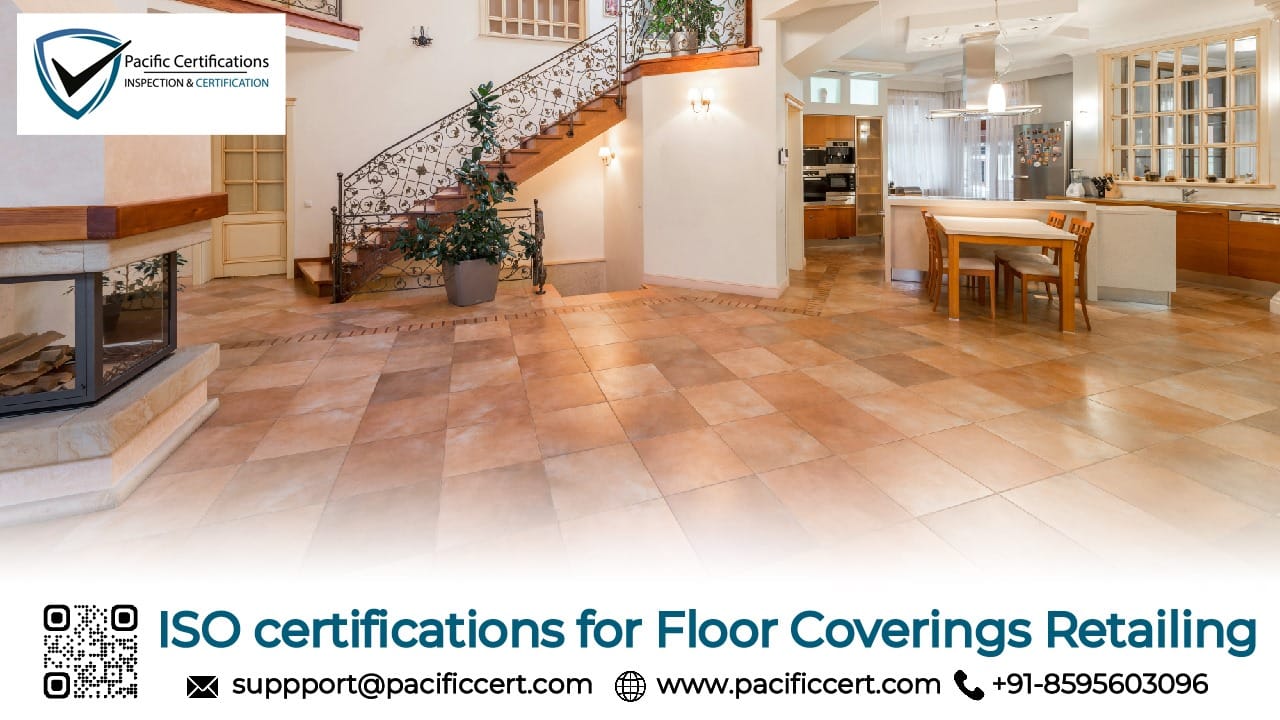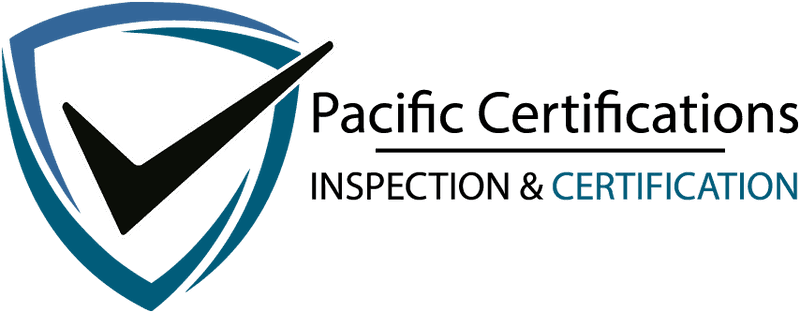ISO Certifications for Floor Coverings Retailing Companies, Requirements and Benefits

Floor coverings retailing encompasses a wide range of products, from carpets and rugs to hardwood and vinyl flooring. As consumers become increasingly concerned about the quality and environmental impact of the products they purchase, the demand for certified products and processes has grown.
ISO standards provide frameworks that helps floor coverings retailers to demonstrate their commitment to quality, environmental responsibility and customer satisfaction.
Ready to elevate your Floor Coverings Retailing business with ISO certification? Reach out to us at [email protected].
Applicable ISO Standards for Floor Coverings Retailing
Several ISO standards are particularly relevant to the floor coverings retailing industry. These standards help retailers address various operational challenges. Below are some of the most applicable ISO standards for floor coverings retailers:
ISO 9001:2015 - Quality Management Systems
ISO 9001 is the most widely recognized quality management standard in the world. ISO 9001 helps floor covering retailers in establishing effective quality management practices that ensure the products sold meet customer expectations and comply with regulatory requirements.
ISO 14001:2015 - Environmental Management Systems
ISO 14001 sets out the criteria for an environmental management system. It helps organizations improve their environmental performance through more efficient use of resources and reduction of waste.
ISO 45001:2018 - Occupational Health and Safety Management Systems
For retailers, ISO 45001 certification helps in creating a safer working environment, reducing the risk of work-related injuries and illnesses. Implementing ISO 45001 can also lead to improved employee morale and productivity.
ISO 50001:2018 - Energy Management Systems
ISO 50001 focuses on energy management, helping organizations improve their energy efficiency, helps floor coverings retailers to reduce energy costs and demonstrate a commitment to sustainability.
ISO 14025:2006 - Environmental Labels and Declarations
ISO 14025 provides guidelines for environmental labels and declarations, including environmental product declarations (EPDs). Implementing this standard ensures that environmental claims about their products are credible and transparent.
ISO 26000:2010 - Social Responsibility
ISO 26000 provides guidance on how businesses can operate in a socially responsible way. This standard provides valuable guidance for retailers looking to enhance their social responsibility initiatives.
Click here to find out more applicable standards to your industry
For expert assistance in achieving ISO certification for your Floor Coverings Retailing operations, contact us today at [email protected].
How We Can Help
At Pacific Certifications, we specialize in helping businesses achieve ISO certification. As a certification body, we are accredited to issue certifications for a wide range of ISO standards, including those relevant to floor coverings retailing. We do not provide consultancy services or implementation support.
Our certification process involves a thorough assessment of your operations to ensure compliance with the relevant ISO standards. Once your organization meets the requirements, we issue the certification.
Our team of experienced auditors understands the unique challenges faced by coverings retailers and works closely with you to ensure a smooth and efficient certification process. We are committed to maintaining the highest standards of integrity and impartiality in our certification services.
Looking to certify your Floor Coverings Retailing business with ISO standards? We're here to help! Contact us at [email protected].
Requirements of ISO certifications for Coverings Retailing
Understanding the specific requirements of each ISO standard is crucial for businesses seeking certification. Below is a detailed overview of the requirements for ISO 9001, ISO 14001, ISO 45001, ISO 50001, ISO 14025, and ISO 26000:
ISO 9001:2015 - Quality Management Systems
- Context of the Organization: Understanding the organization’s internal and external issues, including the needs and expectations of interested parties.
- Leadership: Demonstrating leadership and commitment to the QMS, including setting quality objectives and ensuring roles, responsibilities, and authorities are clearly defined.
- Planning: Addressing risks and opportunities, setting quality objectives, and planning changes to ensure the QMS continues to meet requirements.
- Support: Providing adequate resources, ensuring staff competency, raising awareness, and maintaining communication, along with proper documentation and record-keeping.
- Operation: Implementing processes that meet customer requirements and managing changes to products and services.
- Performance Evaluation: Monitoring, measuring, analyzing, and evaluating the QMS's effectiveness, including conducting internal audits and management reviews.
- Improvement: Continually improving the QMS by addressing non-conformities, implementing corrective actions, and driving innovation.
ISO 14001:2015 - Environmental Management Systems
- Environmental Policy: Establishing an environmental policy that includes a commitment to pollution prevention, compliance with legal requirements, and continual improvement.
- Planning: Identifying environmental aspects and impacts, legal and other requirements, and setting environmental objectives and targets.
- Implementation and Operation: Developing the structure, responsibilities, and processes needed to achieve environmental objectives. This includes training, communication, documentation, and operational controls.
- Evaluation of Compliance: Regularly evaluating compliance with legal and other environmental requirements.
- Internal Audits: Conducting internal audits to ensure the EMS is functioning effectively.
- Management Review: Top management reviews the EMS to ensure its continuing suitability, adequacy, and effectiveness.
- Continual Improvement: Using audits, corrective actions, and management reviews to drive continual improvement of the EMS.
ISO 45001:2018 - Occupational Health and Safety Management Systems
- Leadership and Worker Participation: Top management must demonstrate leadership and commitment to the OH&S management system and ensure active worker participation.
- Planning: Identifying hazards, assessing risks, and determining legal and other requirements. Establishing objectives and planning actions to achieve them.
- Support: Ensuring resources, competence, awareness, and communication, as well as maintaining documented information necessary for the OH&S management system.
- Operation: Implementing operational controls to eliminate or reduce risks, including emergency preparedness and response procedures.
- Performance Evaluation: Monitoring, measuring, and evaluating OH&S performance, including internal audits and management reviews.
- Improvement: Identifying opportunities for improvement and implementing corrective actions to prevent recurrence of non-conformities.
Each of these ISO standards offers a comprehensive framework that helps organizations improve their operations and contribute to a more sustainable and socially responsible world.
Get started on your ISO certification journey for Floor Coverings Retailing by contacting us at [email protected] or calling +91-8595603096.
Benefits of ISO certifications for Floor Coverings Retailing
ISO standards provide organizations with a structured framework for improving various aspects of their operations, ranging from quality management to environmental sustainability. Below is an overview of the benefits associated:
- ISO 9001 focuses on meeting customer requirements and improving customer satisfaction.
- ISO certifications are globally recognized and can enhance an organization’s reputation.
- The focus on continual improvement ensures that organizations regularly review and enhance their processes.
- ISO 14001 helps organizations minimize their environmental footprint by promoting more sustainable practices.
- The standards help organizations stay compliant with environmental laws and regulations.
- By improving resource efficiency and reducing waste, organizations can achieve significant cost savings.
- ISO 45001 helps organizations create a safer working environment by identifying and controlling workplace hazards.
- ISO 50001 provides a framework for organizations to manage and improve their energy performance.
- ISO 14025 provides a standardized approach to developing environmental declarations, ensuring that environmental claims are credible, transparent, and based on life cycle assessment (LCA).
- ISO 26000 provides guidance on integrating social responsibility into an organization’s operations, helping to improve its impact on society and the environment.
Collectively, these ISO standards provide a comprehensive framework for organizations to improve quality and operate responsibly. By achieving certification in these standards, organizations can gain reduce costs, enhance their reputation and contribute positively to society and the environment.
Ensure your Floor Coverings Retailing business meets the highest standards. Contact us for ISO certification at [email protected] or call +91-8595603096.
Certification Process for Floor Coverings Retailing
The process of obtaining ISO certification involves several key steps. At Pacific Certifications, we follow a structured approach to guide our clients through the certification process:
Initial Consultation
The certification process begins with an initial consultation where we discuss your specific needs, the applicable ISO standards, and the scope of certification.
Pre-Assessment Audit (Optional)
A pre-assessment audit is an optional step that allows us to conduct a preliminary review of your operations. This audit helps identify any gaps or areas for improvement before the formal certification audit.
Certification Audit
The certification audit is the formal assessment of your operations against the relevant ISO standards. The audit is conducted in two stages:
- Stage 1 Audit: This stage involves a review of your documentation and readiness for the certification audit. We assess whether your management system is properly designed and implemented.
- Stage 2 Audit: In this stage, we conduct an on-site audit to verify that your management system is effectively implemented and meets the requirements of the ISO standards.
Certification Decision
Based on the results of the certification audit, we make a certification decision. If your organization meets the requirements of the ISO standards, we issue the certification. If any non-conformities are identified during the audit, you will need to address them before certification can be granted.
Surveillance Audits
After the initial certification, we conduct regular surveillance audits to ensure that your organization continues to meet the requirements of the ISO standards.
Recertification Audit
ISO certifications are valid for three years. Before the end of this period, a recertification audit is conducted to renew the certification.
If you are a floor coverings retailer looking to enhance your reputation for quality or customer satisfaction, ISO certification is a valuable asset. For more information about ISO certifications or to start your certification journey, please contact us today!
Pacific Certifications is accredited by ABIS, in case you need support with ISO certification for your Floor Coverings Retailing business, please contact us at [email protected] or +91-8595603096.
FAQs: ISO Certifications for Floor Coverings Retailing
Q1: What is ISO certification?
ISO certification is a formal recognition that an organization complies with the requirements of an ISO standard. It demonstrates that the organization meets internationally recognized standards for quality, environmental management, health and safety, or other areas.
Q2: Why is ISO certification important for floor coverings retailers?
ISO certification helps floor coverings retailers enhance their reputation for quality and sustainability and improve operational efficiency. It also ensures compliance with legal and regulatory requirements.
Q3: How long does the ISO certification process take?
The duration of the ISO certification process varies depending on the size and complexity of the organization, the specific ISO standard, and the organization's readiness for certification. On average, the process can take several months from the initial consultation to the issuance of the certification.
Q4: What are the costs associated with ISO certification?
The cost of ISO certification depends on several factors, including the size of the organization, the scope of certification, and the specific ISO standard. We provide a customized quote based on your specific needs during the initial consultation.
Q5: Can Pacific Certifications help with implementing ISO standards?
No, Pacific Certifications is a certification body, and our role is limited to auditing and issuing certifications. We do not provide consultancy, gap analysis, training, or implementation services. However, we can refer you to consultants who can assist with implementation.
Q6: What happens if non-conformities are found during the certification audit?
If non-conformities are identified during the certification audit, you will need to address them before certification can be granted. We provide guidance on how to correct non-conformities, and a follow-up audit may be required to verify that the issues have been resolved.
Q7: How long is the ISO certification valid?
ISO certifications are typically valid for three years. During this period, regular surveillance audits are conducted to ensure ongoing compliance. A recertification audit is required at the end of the three-year period to renew the certification.
Read More at: Blogs by Pacific Certifications

